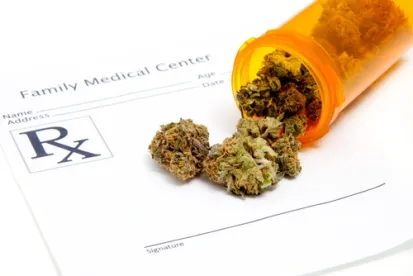Georgia became the twenty-fourth state to enact a medical marijuana law. On April 16, 2015, Governor Nathan Deal signed legislation that immediately legalizes the use of a low-potency form of cannabis oil for medicinal uses. The new law, House Bill 1, known as “Haleigh’s Hope Act,” permits patients suffering from cancer, Crohn’s disease, Lou Gehrig’s disease, mitochondrial disease, multiple sclerosis, Parkinson’s disease, seizure disorders and sickle cell disease to possess up to 20 ounces of “low THC oil.” The low THC oil can contain no more than 5 percent tetrahydrocannabinol, or THC, the psychoactive agent in marijuana. Smoking marijuana is not permitted under the law.
Although the law is effective immediately, the Department of Public Health must promulgate rules and regulations for the establishment and operation of the patient registration process and dispensing of registry cards to individuals and caregivers. The law creates a Georgia Commission on Medical Cannabis which shall establish comprehensive recommendations regarding the potential regulation of medical cannabis in the state, among other things.
Unlike many other medical marijuana laws enacted in the last three years, the Georgia law contains no language protecting medical marijuana users from employment discrimination. Indeed, the law provides considerable protections to employers. It states that: “Nothing in this article shall require an employer to permit or accommodate the use, consumption, possession, transfer, display, transportation, sale or growing of marijuana in any form, or to affect the ability of an employer to have a written zero tolerance policy prohibiting the on-duty, and off-duty, use of marijuana, or prohibiting any employee from having a detectable amount of marijuana in such employee’s system while at work.”




 />i
/>i

